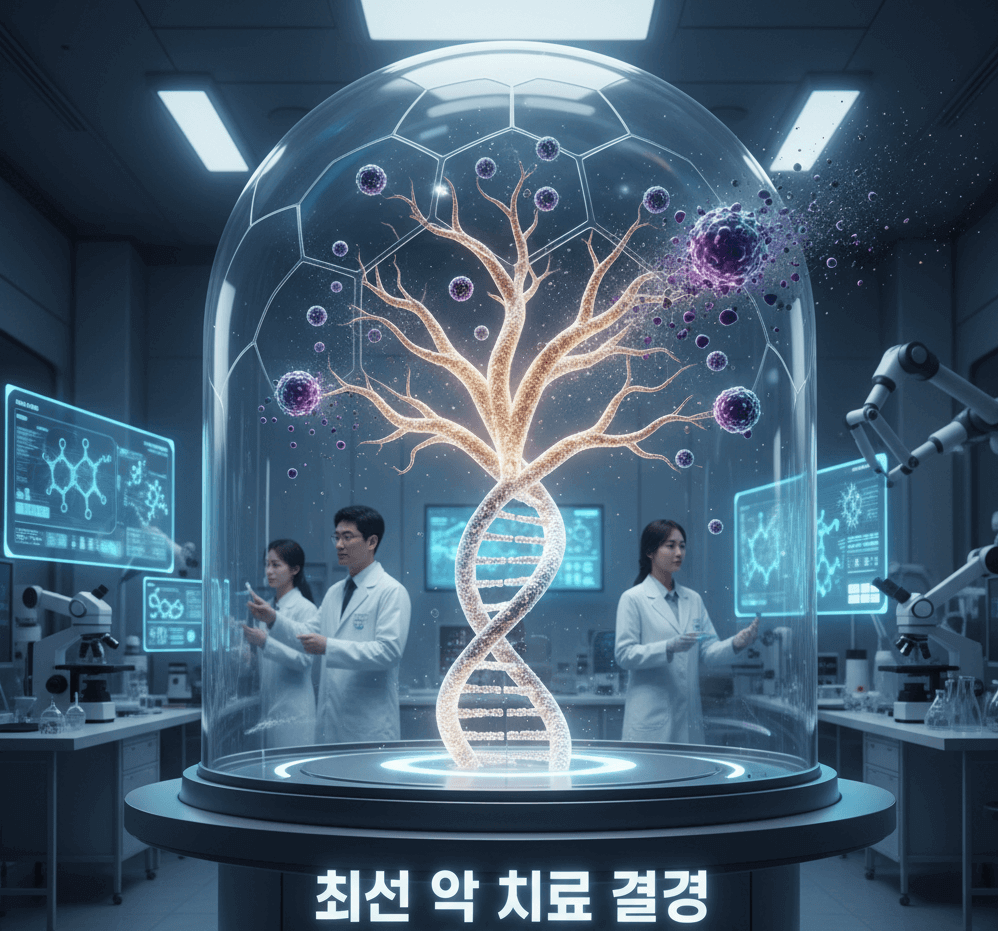Korean scientists are leading a new generation of cancer research. Instead of relying only on surgery, chemotherapy, or radiation, they’re exploring advanced ways to repair, guide, and reprogram cells to stop cancer from growing. Their work is reshaping what we think is possible in medicine — and it’s giving new hope to patients around the world.
Teaching Cancer Cells to Become Normal Again
One of the most remarkable discoveries comes from KAIST (Korea Advanced Institute of Science & Technology).
A research team led by Professor Kwang-Hyun Cho has found a way to turn colon cancer cells back into normal cells.
They used a digital model — like a computer twin of a living cell — to study how cancer genes behave. Then, they discovered that switching off certain genes (such as MYB, HDAC2, and FOXA2) could stop the cancer from acting aggressively.
When they tested it in the lab, cancer cells began to behave like healthy ones again. In animals, the reprogrammed cells formed smaller, weaker tumors.
Why this matters: Instead of destroying cells, this new idea teaches them to “reset” themselves. It could mean gentler and safer treatments with fewer side effects.
Precision Gene Editing — Targeting Only Cancer Cells
At the Institute for Basic Science (IBS), researchers developed a new tool called CINDELA, short for Cancer-specific INDEL Attacker.
This technology uses a gene-editing system called CRISPR to search for and cut out only the DNA errors that cause cancer.
Unlike chemotherapy, which affects healthy and cancerous cells alike, CINDELA targets only the mutated genes in cancer cells. Early tests show promising results in lung, breast, and liver cancer.
In simple terms: It’s like using a smart GPS-guided laser — finding and fixing only the bad parts of the DNA while leaving everything else untouched.
Restoring the Body’s Natural Defenses
Another important area of Korean research focuses on epigenetics — how our genes are switched on or off.
At Seoul National University, Dr. Baek Sung-hee is studying how to reactivate the body’s tumor-fighting genes and shut down those that help cancer grow.
This research could make certain “hard-to-treat” cancers respond again to therapy. By combining these methods with gene editing and immunotherapy, doctors may soon be able to treat cancer more effectively and with fewer side effects.
Future goal: Instead of attacking cancer directly, the treatment helps the body’s own systems take control again.
Smarter Cancer Detection and Diagnosis
Korea is also improving how cancers are found and tracked.
Professor Sunghoon Kwon and his team are developing tools that can study individual cancer cells one by one.
This helps doctors see which cancer cells might resist treatment and how a patient’s immune system is responding.
With the help of artificial intelligence (AI), doctors can use this data to adjust treatment plans more accurately and much faster than before.
Benefit for patients: Cancers can be found earlier, and treatment can be tailored specifically to how each person’s body reacts.
Combining Multiple Treatments for Stronger Results
Korean scientists are also blending several advanced methods to make treatments more powerful and safer.
They are experimenting with gene editing combined with immunotherapy or cell reprogramming combined with targeted drugs.
Tiny nanoparticles are being designed to deliver medicine directly into tumors, reducing damage to healthy organs.
Another exciting project uses tumor-homing peptides — small molecules that act like smart missiles, guiding drugs only to the cancer site.
Takeaway: Future cancer treatments may no longer rely on one approach. Instead, they’ll use a smart mix of methods to attack the disease from multiple angles.
The Challenges Still Ahead
While these breakthroughs are inspiring, many of them are still being tested in laboratories. It will take time before they become everyday treatments.
Scientists need to make sure that reprogrammed or edited cells are completely safe and don’t turn cancerous again.
The cost of these high-tech procedures is also a challenge, and not all patients will respond in the same way.
In short: The science is real and full of promise, but careful testing and time are still needed before we can see these treatments widely available.
What This Means for the Future
Korea is also investing heavily in AI-assisted cancer care, where computers can design custom treatments for each patient.
Researchers are testing 3D tumor models to safely study how new drugs work before trying them in people.
Other teams are exploring how the immune system can be “trained” to find and destroy cancer cells more efficiently.
The long-term vision: Cancer may one day be treated as a manageable condition — something that can be controlled, corrected, or even reversed.
Final Thoughts
Korean scientists are redefining how the world fights cancer. Their discoveries — from cell reprogramming to smart gene editing — show that the future of cancer treatment may be about healing rather than destroying.
These breakthroughs offer real hope. While more studies are needed, one thing is clear:
Korea is writing the next chapter in cancer medicine — cell by cell, gene by gene.













